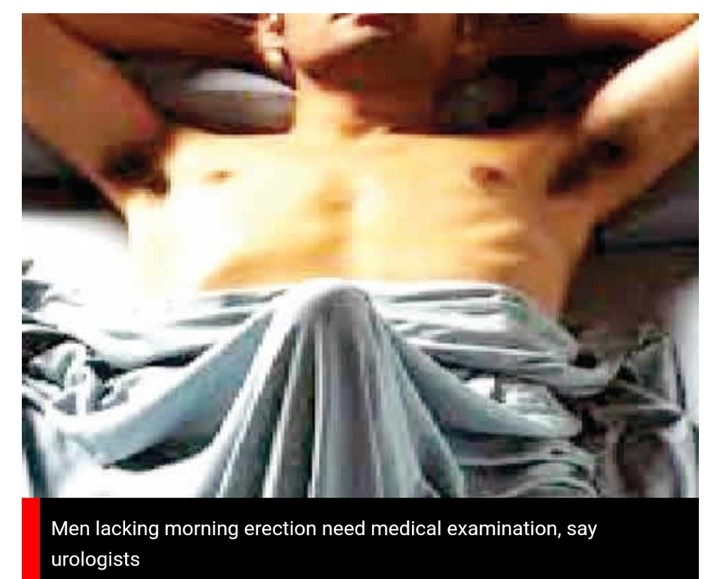Health/Beauty
OGUN SETS UP ADMINISTRATIVE PANEL ON OOUTH

The Ogun State Government has instituted a panel of enquiry to look at the remote and immediate causes of the current challenges facing the State-owned Olabisi Onabanjo University Teaching Hospital (OOUTH).
In a statement issued on by the Chief Press Secretary to the Governor, Mr Kunle Somorin said the 9-man committee is chaired by Dr Yemi Onabowale, the Chief Medical Director of Reddington Hospital.
The committee is expected to assess the operational modalities of the hospital and ascertain its compliance with acceptable standard for medical training, research and tertiray health care services.
The committee’s specific terms of reference are:
- To assess the current operations of the hospital, in line with expectations as a teaching/tertiary institution;
2.To determine the state of facilities of the various units and departments and make recommendations to the state on the steps necessary to ensure sustainable operations in the institution;
- Determine quick wins and palliative actions to stem further degeneration of the institution and facilities;
- Review all third party arrangements in the institution, including the Private-Public Partnership (PPP) and other services
provisioning arrangement and determine their level of
compliance at the time of that engagement and with the efficacy but more especially suitability for the intent of the State Government; - Review and recommend programme and strategies to ensure that the operation of the hospital is self-sustaining and financially independent;
- Any other reviews as might be critical to the long-term sustainability of the image and productivity of the institution.
To work with Dr Onabowale on the committee are:
- Dr. Folabi Ogunlesi –
Member - Dr. (Mrs) Dupe Oludipe – Member
- Dr.Kehinde Ololade – Member
5.Alhaji Wasiu Lawal –
Member
6.Mr. Olumide Obube – Member - Akinola Adekunle – Member
8.Femi Akinwunmi – Member�
Deputy Director, Hospital Services in the State Ministry of Health, Dr Shokunbi Solomon will serve as the Secretary to the Panel.
While speaking at the 43rd Annual General Scientific Meeting of the West African College of Physicians(WACP) with the theme, ” HEALTHCARE GOVERNANCE IN NIGERIA” held at the Olusegun Obasanjo Presidential Library, Abeokuta, Governor Abiodun said that his commitment to the people of the state was to look after their welfare, adding that the state was also committed to restructuring the Health Insurance Scheme by addressing the identified lapses to make it more efficient and affordable.
He disclosed that with the panel of enquiry on the OOUTH, the tertiary institution would be able to serve as an effective referral center to the lower tier and healthcare delivery centres.
He added that his administration was committed towards ensuring that a hospital was designated in the three senatorial district as a specialized hospital of excellence that would treat a particular ailment.
Abiodun noted that when he visited OOUT in Sagamu last month and the General hospital in Ilaro last weekend he saw that a lot needed to be done to re- position the health sector in the state.
He reiterated that the state was deeply committed to rehabilitating, equipping and staffing of general hospitals across the state.
“The Olabisi Onabanjo University Teaching Hospital will serve as an effective referral center to the lower tier and healthcare delivery centers.
The governor noted that his administration would restructure the health insurance scheme to make it more effective and accessible to the people, adding that efforts would be made towards improving infant and mortality rate in the state.
Prince Abiodun also disclosed that his government would be committed to the re-training and recruitment of more medical personnel, saying that the working conditions for medical personnel in the state would be improved upon.
In his welcome address, the National Chairman, West African College of Physicians, Dr. Abel Nze Onunu noted that the time was ripe for the country to examine the impact of social ills on healthcare in the country, adding that with the increased rate of poverty, a lot of people were now turning into alternative health resolution to seek solutions to their medical challenges.
He also opined that some form of auditing ought to be done on health care professional training and practice,adding that the process would help to enhance a good human healthcare resources management in terms of availability and distribution.
Also,the Chairman, Organizing Committee, Dr. Sunday Malomo regretted that despite the fact that the country has some of the best brains as well as world class physicians and health workers, the country also has some of the worst and most embarrassing health indices, saying that it was time to collectively harness resources to run people -focused health system in an efficient manner.
In his goodwill message,, the Chief Medical Director, Federal Medical Center, Professor Musa Olomu noted that it was time for government to intervene in the influx of the countries best medical brains to other countries,adding that it was equally important for government to look into massive training of resident doctors to effectively provide services to the people.
Kunle Somorin
Chief Press Secretary to the Governor
Fashion/Lifestyle
Introducing “Atupaglowco” : Where Fragrance Meets Feeling; The Story of Our Beginning

Introducing “Atupaglowco”: Where Fragrance Meets Feeling; The Story of Our Beginning
Every great journey begins with a sense of anticipation. For us, it began with a simple belief that a space should do more than exist, it should speak comfort and glow.
In a world filled with noise, stress, and endless motion, we realized something powerful. Fragrance can transform not just rooms, but moods. A familiar scent can calm anxiety. A warm aroma can turn a house into a home. A gentle glow can bring peace after a long day. This realization gave birth to “Atupaglowco.”
Atupaglowco was not created to sell diffusers, room sprays, or candles. It was created to create experiences. To create moments. To create atmospheres where people can breathe, reflect, and feel whole again.
The name itself represents more than a brand. It represents warmth. It represents light. It represents presence. We remember the early days, the planning, the testing of scents, the moments of doubt, and the moments of excitement. Each candle poured was a step of faith. Each fragrance blended was a piece of our vision coming to life. We weren’t just building products; we were building something meaningful.
Our diffusers were designed to quietly fill spaces with elegance.
Our room sprays were crafted to instantly refresh and revive environments. Our candles were made to bring calm, beauty, and a soft glow into everyday life.
Atupaglowco was born from passion, patience, and purpose. This launch is not just the start of a business. It is the start of a movement to help people create spaces they love. Spaces that inspire rest. Spaces that inspire joy. Spaces that glow.
We believe fragrance is personal. We believe glow is emotional. We believe every space deserves both.
Today, we proudly introduce Atupaglowco to the world.
This is only the beginning.
Health/Beauty
Transforming Healthcare: RapidHeal Nigeria Offers Job Opportunities for 100 Certified Nurses Nationwide

Transforming Healthcare: RapidHeal Nigeria Offers Job Opportunities for 100 Certified Nurses Nationwide
Health/Beauty
Why Men Without Morning Erection Need Help

Why Men Without Morning Erection Need Help
Male reproductive health experts have urged men to take their sexual health seriously by seeking medical evaluation if they are not experiencing morning erections, a common and natural occurrence in healthy men.
The urologists stated that men experiencing persistent erectile issues or concerns should consult a healthcare professional for personalised evaluation and guidance.
Speaking exclusively with PUNCH Healthwise, the physicians advised men not having morning erections to carry out a comprehensive health assessment, including hormone testing, semen analysis, and lifestyle evaluations, to determine the underlying causes which may be erectile dysfunction or infertility.
According to Healthline, morning erections, a natural occurrence in most men, are often seen as a sign of healthy sexual function. They are typically caused by increased blood flow and hormonal fluctuations during the rapid eye movement (REM) phase of sleep.
The health website, however, noted that a notable number of men have reported experiencing a lack of morning erections, raising concerns about potential fertility or sexual health problems.
While some experts suggested that the absence of morning erection could be linked to underlying health issues, including infertility, others argued that it is not a reliable indicator of reproductive health.
A consultant urologist, Dr Emmanuel Eze stated that the body’s ability to have regular morning erections may be a reflection of broader reproductive health.
The physician stressed that the absence of morning erections could signal problems with hormone levels, such as low testosterone, or vascular health, which could affect overall erectile function and, in some cases, fertility.
Eze emphasised that morning erection is a natural occurrence during the REM sleep stage, typically happening 3-5 times per night.
The physician explained that the absence of morning erections could suggest issues such as erectile dysfunction, low testosterone levels, or underlying cardiovascular conditions.
According to him, it is normal for men to experience morning erections three to five times each night. These erections are typically spontaneous and occur without sexual arousal. The process is part of the body’s natural hormonal fluctuations and is linked to the functioning of the nervous system and blood flow.
Eze explained that these spontaneous erections during sleep are crucial in maintaining healthy erectile function and, by extension, overall reproductive health.
He emphasised that they are a natural and healthy sign of the body’s ability to achieve and maintain erections, which are important for male fertility.
“While occasional changes in morning erections are normal as men age, a persistent lack of them could point to potential health problems such as erectile dysfunction, low testosterone, or even more serious conditions like heart disease. Men mustn’t ignore these early warning signs.
“A comprehensive evaluation can help pinpoint the cause and allow for timely treatment options, whether it’s lifestyle changes, therapy, or medications,” Eze added.
Speaking further, the urologist elaborated that the absence of morning erections could be an indication of various medical conditions that might impact sexual and reproductive health.
“Erectile dysfunction is often the result of an imbalance in the body’s ability to deliver blood to the penis. If morning erections are absent, it could be a reflection of poor blood flow or nerve function, which are key contributors to erectile dysfunction,” Eze explained.
In addition to erectile dysfunction, the male reproductive expert noted that the absence of morning erections may also be linked to low testosterone levels.
He added, “Testosterone is the primary male sex hormone, essential for sexual function, mood regulation, and the production of sperm. A decline in testosterone can lead to a reduced frequency of morning erections. It can also cause a range of other symptoms, such as fatigue, decreased libido, and loss of muscle mass. While a decrease in testosterone levels is a natural part of aging, significant drops in testosterone could signal more serious health concerns.”
Eze also underscored the connection between erectile function and male fertility, stressing that problems with achieving or maintaining an erection could affect a man’s ability to conceive.
He explained that erectile function plays a critical role in sperm delivery, and when erectile issues arise, they could make it more difficult to engage in regular sexual activity, which could impact fertility.
“There is a direct connection between erectile function and male fertility. If a man is consistently not experiencing morning erections, it could indicate that there’s an issue with his reproductive system, whether it’s a problem with his hormones, blood vessels, or nerve function,” he said.
He pointed out that while the absence of morning erections does not automatically equate to infertility, it could signal underlying problems that should be addressed.
Eze advised that men who notice a persistent absence of morning erections should consult a urologist for an evaluation of their reproductive and sexual health.
He explained that poor blood circulation, which is often associated with heart disease or high blood pressure, can directly affect the ability to achieve erections.
“The vessels that supply blood to the penis are small and delicate, and when these vessels are compromised due to poor cardiovascular health, it can result in a decreased ability to have spontaneous erections.
“Erectile dysfunction is frequently one of the early signs of cardiovascular problems. If a man is not having morning erections, it could be a sign that his vascular health is not in optimal condition. It’s essential to recognise this as a potential red flag and seek medical advice before the issue becomes more severe,” the urologist warned.
However, a Senior Registrar in Urology at the Lagos State University Teaching Hospital, Dr. Akpo Edewor, argued that the lack of a morning erection is not necessarily an indication of serious health concerns, as many people assume.
Edewor emphasised that the absence of morning erections is not an automatic sign of erectile dysfunction or serious sexual health problems.
He explained, “Morning erections should not be viewed as the definitive measure of sexual health. It is important to understand that men can still maintain erectile function despite not having morning erections. This does not immediately indicate erectile dysfunction.”
The urologist stressed that various factors, such as sleep patterns, stress, or even the time a man wakes up, can influence whether or not he experiences a morning erection.
He further clarified that a key component in assessing erectile health is the ability to achieve an erection in response to sexual stimuli.
“If a man can still attain an erection when engaging with a partner, even without morning erections, this indicates that his erectile function is likely intact,” he stated.
Erectile dysfunction, according to Edewor, is more complex than just the absence of morning erections. It is a condition where a man consistently struggles to achieve or maintain an erection sufficient for sexual intercourse.
He said various health conditions, including heart disease, diabetes, hypertension, and even the medications used to treat these conditions, could contribute to erectile dysfunction.
-

 celebrity radar - gossips6 months ago
celebrity radar - gossips6 months agoWhy Babangida’s Hilltop Home Became Nigeria’s Political “Mecca”
-

 society6 months ago
society6 months agoPower is a Loan, Not a Possession: The Sacred Duty of Planting People
-

 society5 months ago
society5 months agoReligion: Africa’s Oldest Weapon of Enslavement and the Forgotten Truth
-

 news6 months ago
news6 months agoTHE APPOINTMENT OF WASIU AYINDE BY THE FEDERAL GOVERNMENT AS AN AMBASSADOR SOUNDS EMBARRASSING









You must be logged in to post a comment Login